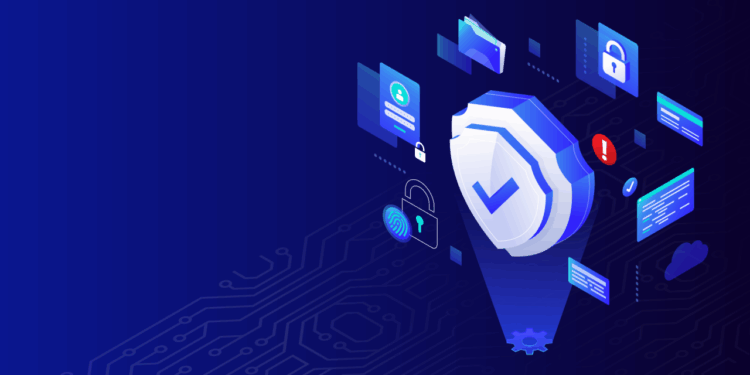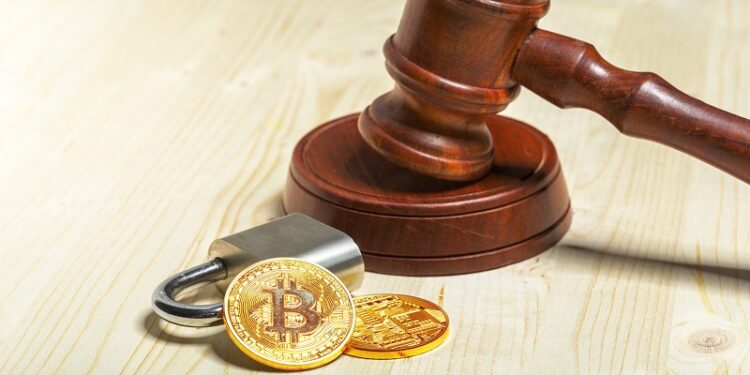The rapid proliferation of digital assets—from cryptocurrencies and NFTs to tokenized real estate and in-game items—has introduced a paradigm shift in finance, technology, and commerce. These assets, which exist exclusively in the digital realm, present a complex and challenging frontier for legal systems designed for a world of tangible property. Digital Assets and the Law is a dynamic field that is actively shaping how we define, own, and transfer value in the 21st century. This article will provide a comprehensive overview of the legal landscape surrounding digital assets, exploring the key regulatory challenges, emerging legal frameworks, and the critical issues of ownership, security, and jurisdiction. We will delve into how lawmakers and courts are grappling with these novel concepts and offer a strategic guide for businesses and individuals seeking to navigate this new era of digital jurisprudence.
The Fundamental Legal Challenge

The primary hurdle for the legal system is the lack of a clear, universal definition for digital assets. Their unique characteristics—decentralization, immutability, and digital scarcity—do not fit neatly into existing legal categories.
A. Securities vs. Commodities: In many jurisdictions, the legal status of a digital asset hinges on whether it is classified as a security or a commodity.
- The Howey Test: In the U.S., the Securities and Exchange Commission (SEC) uses the Howey Test to determine if an asset is a security. The test looks for an investment of money in a common enterprise with a reasonable expectation of profits to be derived from the efforts of others. This test has been applied to many digital assets, leading to enforcement actions against companies that conducted unregistered securities offerings.
- The “Commodity” Classification: The Commodity Futures Trading Commission (CFTC) has jurisdiction over commodities. The CFTC views certain digital assets, like Bitcoin, as commodities, leading to a regulatory turf war between the two agencies. The lack of a clear distinction creates significant legal uncertainty for developers and investors.
B. Property Law and Ownership: Traditional property law is based on the concept of physical possession and title. Digital assets, which exist on a blockchain, challenge these fundamental principles.
- Digital Possession: How do you legally “possess” a digital asset? Is it by holding the private key? This is the prevailing view, but it raises questions about inheritance, divorce, and what happens when a private key is lost or stolen. The law is still developing a framework for what constitutes legal “possession” in the digital world.
- Defining “Title”: The concept of a clean “chain of title” is a cornerstone of property law. For an NFT, the chain of title is recorded on the blockchain. However, the legal system is still grappling with whether this on-chain record is the final word on legal ownership, or if a court can intervene to change or void a transaction.
C. The Rise of NFTs and Intellectual Property: Non-Fungible Tokens (NFTs) have introduced a new layer of complexity, blurring the lines between art, ownership, and intellectual property.
- Ownership vs. Copyright: When a person buys an NFT, are they buying the underlying intellectual property (the copyright) or simply a token that points to the art? The answer is often in the smart contract and the terms of sale. The prevailing view is that buying an NFT does not automatically transfer the copyright, leading to a new wave of legal disputes.
- Trademark and Counterfeits: The legal system is also grappling with what happens when a trademarked item is “tokenized” and sold as an NFT without the brand’s permission. The legal fight over digital counterfeits is just beginning.
The Regulatory Landscape

The legal framework for digital assets is a patchwork of regulations from different government agencies and countries. This fragmented landscape creates compliance challenges for businesses that operate globally.
A. The SEC’s Enforcement Approach: The U.S. Securities and Exchange Commission has taken an “enforcement-first” approach to the crypto industry.
- Clarity through Enforcement: Instead of providing clear rules and guidance, the SEC has used lawsuits against crypto projects and exchanges to signal its regulatory position. This approach has been criticized by the industry for creating legal uncertainty and stifling innovation.
- The “Investment Contract” Test: The SEC has focused on the “investment contract” part of the Howey Test, arguing that a wide range of digital assets were sold to investors with an expectation of profit from the efforts of others.
B. International Regulatory Frameworks: The regulatory landscape for digital assets is highly inconsistent across the globe.
- The European Union’s MiCA: The EU’s Markets in Crypto-Assets (MiCA) regulation is a landmark law that provides a clear and comprehensive framework for the crypto market. It defines different types of digital assets and establishes a single licensing regime for crypto service providers across the EU. This approach is seen as a more proactive and innovation-friendly alternative to the U.S.
- The UK and Asia: The UK, Singapore, and Japan have also taken a more proactive stance, providing clear guidance on how digital assets should be regulated, particularly in the areas of anti-money laundering and consumer protection.
C. Anti-Money Laundering (AML) and Sanctions: Digital assets have been a tool for money laundering and sanctions evasion.
- The FATF’s Travel Rule: The Financial Action Task Force (FATF) has set global standards for AML in the crypto world, including the “Travel Rule,” which requires financial institutions to obtain and hold information on the sender and receiver of a crypto transfer. This is a significant challenge for decentralized crypto but is becoming a de facto global standard.
- Sanctions Enforcement: Governments are using blockchain analytics to track and seize digital assets that are linked to sanctioned entities. The immutable nature of the blockchain makes these assets traceable, providing a new tool for law enforcement.
D. Taxation: The taxation of digital assets is a major area of legal development.
- Defining a “Taxable Event”: Tax authorities around the world are grappling with what constitutes a “taxable event.” Is it when you buy crypto? When you sell it? When you use it to buy a good or service? When you “stake” it to earn interest? The answers to these questions are still evolving.
- Lack of Clarity: The lack of clear guidance on crypto taxation creates a difficult situation for individuals and businesses. The next chapter of digital asset law will involve clearer rules and more consistent tax reporting requirements.
Key Legal Issues for Businesses and Individuals
The complexities of digital asset law create a number of legal risks and challenges for all participants in the ecosystem.
A. Smart Contracts and Legal Enforceability: Smart contracts are self-executing digital contracts that run on a blockchain.
- Code as Law: The concept of “code is law” is a core tenet of crypto, but it clashes with the legal system’s need for interpretation, context, and a human element. What happens when a smart contract executes in a way that the parties did not intend? Can a court intervene to change or stop the execution of a smart contract?
- Jurisdiction: Smart contracts are borderless, but the legal system is bound by jurisdiction. This creates a complex legal challenge. A court in one country may not have jurisdiction to enforce a ruling on a smart contract that is being executed on a global network.
B. Custody and Security: The security of a digital asset is often tied to the security of the private key.
- Fiduciary Duty: Custodians of digital assets, such as crypto exchanges and wallet providers, have a legal and fiduciary duty to protect their clients’ assets. When a hack or security breach occurs, the custodian can be held liable for the loss.
- Lost or Stolen Keys: What happens when a private key is lost or stolen? The current legal framework provides little recourse. The law is still developing a way to address this, perhaps through a form of “digital salvage” or a court-ordered change of ownership.
C. Decentralized Autonomous Organizations (DAOs): DAOs are organizations governed by code and a collective of token holders.
- Legal Personhood: Are DAOs legal entities? Can they be sued? Can they enter into contracts? The legal status of DAOs is still an open question. Some states, like Wyoming, have passed laws that recognize DAOs as a new form of legal entity, but the issue is far from settled globally.
- Liability of Token Holders: If a DAO is not a legal entity, can the individual token holders be held liable for the DAO’s actions? This is a significant risk for participants in a DAO.
D. Consumer Protection: The decentralized, unregulated nature of much of the crypto world has left consumers vulnerable to scams, hacks, and fraudulent projects.
- Regulatory Scrutiny: Regulators are placing a greater emphasis on consumer protection in the digital asset space. This includes new rules for exchanges, disclosure requirements for projects, and enforcement actions against bad actors.
- Self-Custody Risks: The push for self-custody of digital assets, while empowering, also places the full burden of security on the individual. The legal system is still grappling with how to protect consumers in a world where they are their own bank.
The Future for Comprehensive and Cohesive Legislation
The current patchwork of regulations is not sustainable. The industry and regulators alike are pushing for a more comprehensive and forward-looking legal framework.
A. Tailored Legislation: There is a growing consensus that new, tailored legislation is needed for the digital asset industry. Retrofitting old laws to new technologies is not working. New legislation would provide clear rules for classification, consumer protection, and market integrity, fostering innovation while mitigating risks.
B. International Collaboration: Given the global and borderless nature of digital assets, international legal cooperation is a necessity. The development of a global standard for regulation would make it easier for businesses to comply and for individuals to understand their rights, creating a more consistent and trustworthy digital ecosystem.
C. The Role of Decentralized Law and Governance: As decentralized systems become more prevalent, new forms of decentralized law and governance will emerge. DAOs will develop their own internal rules and governance structures, and these may eventually be recognized by the legal system. This is a long-term trend, but it is one that has the potential to fundamentally change how we think about law.
D. Education and Awareness: A major part of digital asset law’s next chapter will be education. Regulators and legal professionals will need to be educated on the technology, and the public will need to be educated on the risks and opportunities of investing in digital assets. This education is key to building a more informed and resilient digital society.
Conclusion
Digital assets and the law represent a critical intersection of technology, finance, and human society. The legal challenges are immense, from the classification of a digital asset to the accountability of decentralized systems. However, the opportunity is even greater: to create a legal framework that protects consumers, ensures market integrity, and allows the incredible potential of digital assets to be realized. The decisions made by regulators, lawmakers, and the industry itself in the coming years will not only shape the future of digital assets but also define our relationship with value, ownership, and the very concept of trust in a digital world. The journey is just beginning, and the story of digital assets and the law’s next chapter is one that will be written by all of us.








